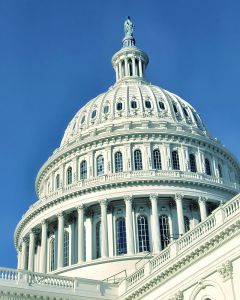The recent scandal involving the National Security Agency and the now-notorious Edward Snowden have raised many questions with regard to both what data security looks like now, and what it will look like in the near future. Some say that data companies will create new ways to empower their customers to keep their data secure. And this is, in fact, happening already, at least with one company. Interestingly, the many views with regard to the possible future of data are all feasible.
Google’s Attempts at Information Encryption Control
Search Giant Google is attempting to fight government data requests in two ways: via court cases and by introducing an encryption feature to its Drive product. Although the latter is still in its initial testing stage, the feature would see Drive users being able to encrypt any files they upload to the service. Google, as well as Microsoft have also sent in letters to the United States government, which call for the body to be more transparent with regard to the data it requests for the purposes of national security.
The Problem with Google’s Efforts
There is more than one issue with Google’s desire to try and thwart government requests for information from its users, some say. First, they say that file encryption will not stop the government from collecting user data, simply because there are many ways for the government to get around that strategy.
For one, it can install its own devices on any network it wishes to eavesdrop on, especially those internet providers which have decided not to comply with the demand for data.
As well, experts are saying that this approach by Google fails because of two things: the fact that files are only encrypted on the storage service, and not encrypted once downloaded by the user, and the fact that users have to trust the company to properly manage the security of their data.
Data Object Security
What if data could be protected, both at the system level and at the system data level? This theory, called data object security would ensure that every file uploaded to a system would contain its own set of rules which would govern what every person who downloaded and uses the file could do with that file. And the rules would be different for each and every individual who viewed and used the file.
This would allow several people at different levels of company clearance to work on the same file, without the worry that sensitive file information would be accidentally revealed at any given stage. This alternative has many benefits, according to experts. First, it would allow for the more accurate tracking of information by companies who use it. This is because each file accessed would provide clear instructions as to the individual’s permissions to use it, as well as instructions detailing to whom the document would be sent next.
Just How Much Data is There to Process?
The NSA has some serious data storage capability, according to a recent report. Their Prism Data Center is allegedly 25,000 square feet of server-filled halls. In addition, cables and storage are housed in raised floor space. O top of that, an additional over 900,000 square feet will be allotted for IT admin and support.
All told, the computing power of the Prism data center is enough to gather and process data in the yottabytes, which is the next highest magnitude of data, equaling 1,000,000,000,000,000,000,000,000 bytes of data, or about five hundred quintillion pages of text. So how does a company opt out of such data-gathering power?
Fires Fueled With NSA Announcements and Public Outrage
The always-controversial spying activities so unceremoniously announced by one Edward Snowden may have reached a fever pitch with the NSA revealing that it has conducted what it calls “three-hop” analysis of user data, which involves studying suspect data, then the data of their contacts, along with the contact’s list of contacts. Finally, the analysis concludes with the examination of all data collected.
Should this type of analysis become the norm, it would grossly increase teh potential for millions or billions more to be monitored by the NSA than there already are. And so, whatever tools are available to opt out or outright thwart government data collection may be readily considered by an increasingly-frustrated public.
Citations:
- Google Drive and Encryption Control
Featured images:
License: Royalty Free or iStock
source: http://www.sxc.hu/photo/918333
Guest author Cassandra Liam writes on a variety of topics related to technology, including helping consumers understand how available internet options affect their online functionality.





